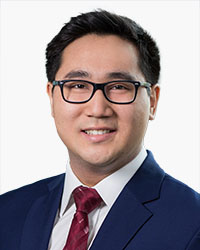WEBINAR SERIES
Preparing for the (Non-Existent) Future of Work
The authors analyze how to set up institutions that future-proof our society for a scenario of ever-more-intelligent autonomous machines that substitute for human labor and drive down wages. The authors lay out three concerns arising from such a scenario, culminating in the economic redundancy of labor, and evaluate recent predictions and objections to these concerns. Then they analyze how to allocate work and income if these concerns start to materialize. As the income produced by autonomous machines rises and the value of labor declines, the authors find that it is optimal to phase out work, beginning with workers who have low labor productivity and job satisfaction, since they have comparative advantage in enjoying leisure. This is in stark contrast to welfare systems that force individuals with low labor productivity to work. If there are significant wage declines, avoiding mass misery will require other ways of distributing income than labor markets, whether via sufficiently well-distributed capital ownership or via benefits. Recipients could still engage in work for its own sake if they enjoy work amenities such as structure, purpose, and meaning. If work gives rise to positive externalities such as social connections or political stability, or if individuals undervalue the benefits of work because of internalities, then there is a role for public policy to encourage work. However, the authors conjecture that in the long run, it would be more desirable for society to develop alternative ways of providing these benefits.
2023
Session Chair: Michael SONG
Wei Lun Professor of Economics and Head of Department of Economics, Chinese University of Hong Kong and Senior Fellow of ABFER
Anton KORINEK, Rubenstein Fellow, Brookings and Professor of Economics, Department of Economics and Darden School of Business, University of Virginia
Co-author:
Megan JUELFS, Associate Director, Research Initiatives, Institute for Business in Society, University of Virginia
Ben CHAROENWONG, Assistant Professor in Finance, NUS Business School, National University of Singapore
Speakers
-

Anton KORINEK
Rubenstein Fellow, Brookings and Professor of Economics, Department of Economics and Darden School of Business, University of Virginia
Anton Korinek is a Professor at the Department of Economics and at the Darden School of Business of the University of Virginia as well as a David M. Rubenstein Fellow at the Brookings Institution. He is also a Research Fellow at the CEPR, a Research Associate at the NBER, the Economics Lead at the Centre for the Governance of AI (GovAI), a Senior Advisor at the Partnership on AI, and an editor of the Oxford Handbook of AI Governance.
Professor Korinek’s current research analyzes the implications of Artificial Intelligence for inequality and for the future of our economy and society. He has also investigated the mechanics of financial crises and developed policy measures to prevent future crises as well as an influential framework for capital flow regulation in emerging economies. His research has been published in top journals including the American Economic Review, the Review of Economic Studies, the Journal of Econometrics, the Journal of Monetary Economics, the Journal of International Economics and the Journal of Public Economics. It has also been cited on Bloomberg, in the Economist, the New York Times, and the Wall Street Journal. He has won several fellowships and awards for this work, including from the Institute for New Economic Thinking, Longview Philanthropy, and the Hewlett Foundation.
Anton Korinek studied economics, math and law at the University of Vienna and worked for several years at the intersection of IT and finance. After earning his PhD in economics from Columbia University in 2007, he held positions at the University of Maryland and Johns Hopkins University and was a visiting scholar at Harvard University, the Bank for International Settlements, the International Monetary Fund, the World Bank, as well as a frequent visitor to central banks and companies, where he has given lectures and courses. -

Ben CHAROENWONG
Assistant Professor in Finance, NUS Business School, National University of Singapore
Ben CHAROENWONG is an assistant professor of finance at the National University of Singapore. He completed a Ph.D. in Finance and MBA at the University of Chicago Booth School of Business in 2017. His research focuses on financial regulation, corporate governance, household finance, and corporate finance, and has been published in journals like the American Economic Review, Science Advances, Review of Finance, and Manufacturing and Service Operations Management.
His research has been cited in policy reports by the United States Securities and Exchange Commission and the French Council of Economic Analysis, as well as industry reports by the CFA Institute. It has also been covered by multiple media outlets like The Economist, Reuters, and Seeking Alpha. -

Michael SONG
Wei Lun Professor of Economics and Head of Department of Economics, Chinese University of Hong Kong and Senior Fellow of ABFER
Zheng (Michael) SONG is Wei Lun Professor of Economics and the Head of the Department of Economics, Chinese University of Hong Kong (CUHK), a Co-Director of CUHK-Tsinghua Joint Research Center for Chinese Economy, a Co-Director of CUHK-Zhejiang University Joint Research Center for Digital Economy and a Distinguished Visiting Professor at Tsinghua University and Zhejiang University. He received B.A. from Shanghai Institute of Foreign Trade (1997), M.A. from Fudan University (2000) and Ph.D. from Stockholm University (2005). Before joining CUHK, he was an Assistant/Associate Professor of Economics at Chicago Booth (2011-15), a Visiting Scholar/Assistant Professor of Economics at CUHK (2009-11) and a Research Fellow at Fudan University (2005-09). He is a Senior Fellow of ABFER and a Fellow of Luohan Academy. His research focuses on Chinese economy and macroeconomics. His papers were published by leading academic journals including American Economic Review, Econometrica and Journal of Political Economy. He won Sunyefang Economic Science Award in 2013. He is an Associate Editor of Econometrica, Review of Finance and was a Co-Editor of China Economic Review. He sits on a number of academic advisory boards such as China’s Economics Foundation and Hong Kong Institute for Monetary and Financial Research.
- 1
Session Format
Each session lasts for 1 hour 10 minutes (25 minutes for the author, 25 minutes for the discussion and 20 minutes for participants' Q&A). Sessions will be recorded and posted on ABFER's web, except in cases where speakers or discussants request us not to.
Registration
Please register here to receive a unique Zoom link. (Notice: Videos and screenshots will be taken during each session for the purpose of marketing, publicity purposes in print, electronic and social media)

